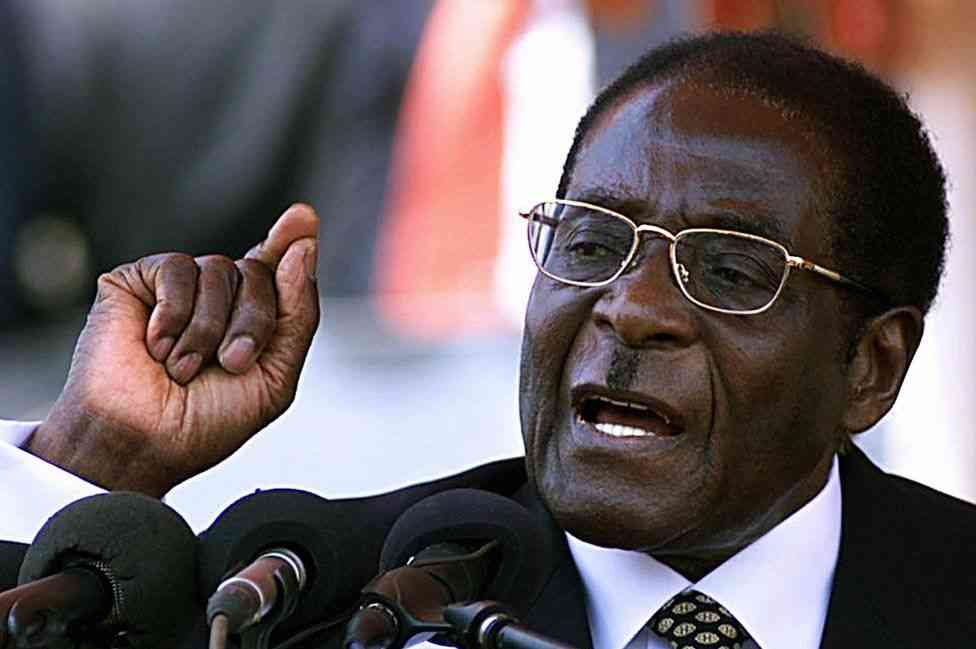
ON what would have been Robert Mugabe’s 100th birthday, Zimbabwe and the world grapple with the complex legacy of a man who led Zimbabwe to independence, but later presided over its economic ruin.
Yesterday, Zimbabweans celebrated National Youth Day which coincides with Mugabe’s birthday.
He was born on February 21, 1924.
His death in 2019 marked the end of an era, leaving behind a complex legacy which continues to shape Zimbabwe and Africa as a whole.
Mugabe, a towering figure in African politics, rose to power as a liberation hero but eventually became a polarising figure due to his authoritarian rule and economic policies.
“Mugabe’s legacy is complex, with both achievements and shortcomings,” said human rights advocate Elvis Mugari.
“However, his impact on Zimbabwe’s history and politics cannot be denied, leaving behind a legacy that continues to shape the country’s trajectory.”
Mugabe’s journey from a schoolteacher to a revolutionary leader is often romanticized as a symbol of resistance to colonial oppression.
- Mavhunga puts DeMbare into Chibuku quarterfinals
- Bulls to charge into Zimbabwe gold stocks
- Ndiraya concerned as goals dry up
- Letters: How solar power is transforming African farms
Keep Reading
Political historian Gerald Mandisodza emphasised Mugabe’s role in the liberation struggle.
“Mugabe was instrumental in leading Zimbabwe to independence, and his unwavering commitment to overthrowing white minority rule earned him admiration and support from many Africans,” he said.
Upon assuming power in 1980, Mugabe inherited a country ravaged by years of colonialism and armed conflict, but its economy was vibrant which Mugabe’s liberation war time ally, late former Tanzanian President Julius Nyerere described as a jewel of Africa.
His initial years as Prime Minister were marked by efforts to reconcile the nation and promote social justice, albeit blemished by the thorny Gukurahundi atrocities in the country’s Matabeleland and Midlands provinces.
“During the first decade of his rule, Mugabe implemented policies aimed at improving education, healthcare and land redistribution, garnering praise for his efforts to address historical injustices,” Mandisodza added.
Political analyst Romeo Chasara said Mugabe’s legacy took a darker turn as his grip on power tightened and dissent was met with brutality.
The Gukurahundi massacres which claimed over 20 000 civilians highlight the dark stain of his rule, he said.
Mugabe died without acknowledging the massacres, only briefly describing them as “a moment of madness”.
“This gross violation of human rights betrays his early commitment to reconciliation,” he said.
Nairobi-based political analyst Aisha Ahmed said Mugabe had authoritarian tendencies.
“Mugabe’s rule was characterised by human rights abuses, electoral fraud and suppression of political opposition,” Ahmed said.
“His regime’s use of violence to maintain power tarnished his reputation and eroded the democratic gains of Zimbabwe’s independence.”
Social commentator Pardon Taodzera said Mugabe’s most significant failure was his mismanagement of the economy, leading to hyperinflation and widespread poverty.
“Mugabe’s land reform programme, which aimed to redistribute land to black Zimbabweans, resulted in agricultural collapse and crippled the economy,” Taodzera said.
“Combined with corruption and misguided fiscal policies, Zimbabwe experienced hyperinflation and economic decline under Mugabe’s leadership.”
Amid growing discontent over Mugabe’s rule, opposition movements gained momentum, challenging his decades-long hold on power.
Coalition Against Corruption founder Terry Mutsvanga, said Mugabe’s legacy was marred by allegations of human rights abuse, corruption and the erosion of democratic institutions.
“The emergence of opposition figures like Morgan Tsvangirai and the Movement for Democratic Change signalled a growing demand for political change and accountability. Despite facing repression, the opposition represented a beacon of hope for Zimbabweans disillusioned with Mugabe’s regime,” he said.
“Mugabe’s authoritarian rule left a legacy of fear and division in Zimbabwean society.
“The systematic suppression of dissent and the weaponisation of State institutions undermined the rule of law and instilled a culture of impunity.”
However, Mugabe is also revered across the continent because of his strong stance against Western imperialism.
“I admired him for being the only voice to talk openly against the United States. He called for a seat in the United Nations Security Council for Africa,” said Malawi-based journalist Edwin Nyirongo.
Kenyan journalist Winnie Kamau said Mugabe would speak his mind without fear.
“I remember him for his forthrightness and courage to speak what was in his mind and heart,” he said.
As Robert Mugabe continues to be remembered, the debate over his legacy also continues to resonate.
From liberation hero to authoritarian ruler, Mugabe’s life reflects the often complex and contradicting African politics.
While some celebrate his contribution to Zimbabwe’s independence, others condemn his record of repression and economic mismanagement.










